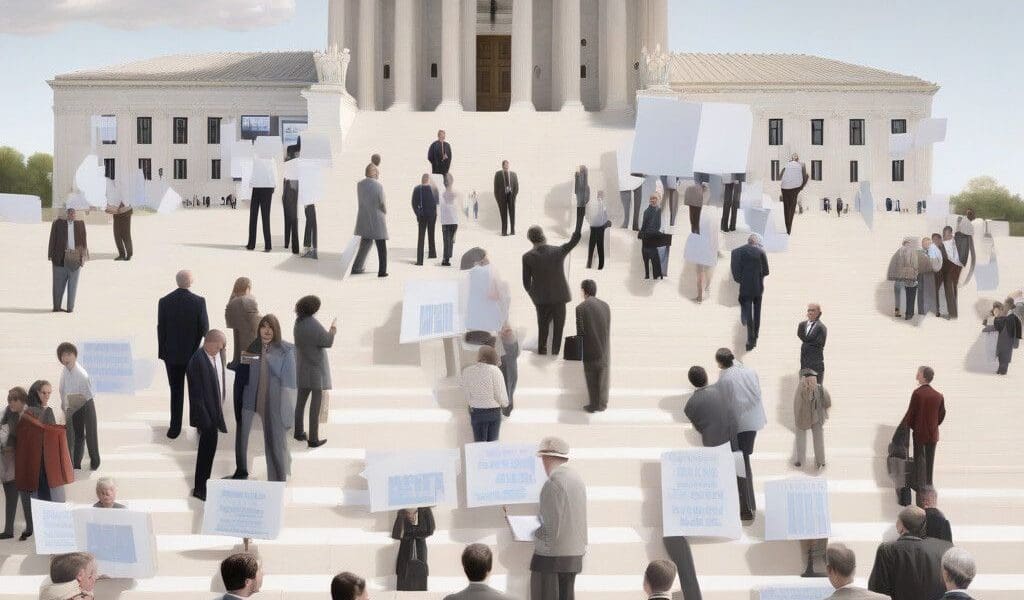US Supreme Court to Review Facebook and Nvidia Securities Fraud Cases: Implications for Corporate Accountability
The upcoming review by the United States Supreme Court regarding news cases associated with Facebook and Nvidia marks a critical juncture for corporate oversight and investor rights. Both tech companies are involved in separate lawsuits that challenge their ability to evade allegations of securities fraud, potentially reshaping how plaintiffs can pursue justice against corporate giants.
The cases stem from the Ninth Circuit Court of Appeals, which allowed class-action lawsuits against both companies to proceed. These lawsuits allege that the companies misled investors regarding significant business developments that had substantial financial implications. The outcomes of these cases could set critical precedents for corporate liability and investor protection in the United States.
In the case involving Facebook, a group of investors led by Amalgamated Bank claims that the social media platform misrepresented its exposure to risks associated with a data breach linked to Cambridge Analytica. This breach affected over 30 million users and is seen as a significant incident in the realm of data privacy and security. Facebook contends that its disclosures regarding potential risks were sufficient and projective in nature, suggesting that it had adequately informed shareholders about the state of affairs.
On the other hand, Nvidia is facing allegations from the Swedish investment firm E. Ohman JFonder AB, which claims that the company downplayed the role of cryptocurrency-related sales in its financial growth during 2017 and 2018. This accusation suggests that Nvidia misled investors about the volatility and risks associated with its business, which could have affected stock valuations during that period.
The implications of these cases extend beyond the courtroom. Legal experts suggest that the outcomes could influence the landscape of private litigation against corporations. David Shargel, a noted legal authority, emphasizes that as regulatory agencies like the U.S. Securities and Exchange Commission (SEC) encounter resource constraints, the role of private lawsuits in holding corporations accountable may become increasingly significant. This shift could empower investors to use legal channels to address grievances that they perceive are being overlooked by federal regulators.
Moreover, the Supreme Court’s rulings in these cases may establish a framework for how corporate disclosures are evaluated in the context of investment decisions. If the court sides with the tech companies, it could limit the avenues available for investors to file lawsuits based on perceived inaccuracies or omissions in corporate communications. On the contrary, if the court supports the plaintiffs, this could enhance the accountability of companies by reinforcing the notion that they have a duty to provide transparent and comprehensive information about their operations.
The increased relevance of these cases is underscored by a backdrop of diminishing regulatory zeal. With previous Supreme Court decisions limiting the reach and capabilities of regulatory agencies, such as the SEC, businesses may find themselves with reduced legal risks stemming from private litigation. Consequently, investors might have no choice but to rely more heavily on lawsuits as a means of recourse.
The Court’s review will undoubtedly draw significant attention from both legal scholars and corporate entities alike, with the rulings likely influencing future litigations involving securities fraud. Observers are closely monitoring these proceedings, understanding that the ramifications can spread across various sectors, ultimately affecting the conduct of publicly traded companies.
In conclusion, the anticipated Supreme Court review of Facebook and Nvidia’s securities fraud cases arrives at a pivotal moment for corporate governance and investor rights. As these tech giants prepare to defend their actions, the outcomes will help define the boundaries of corporate accountability in the digital age and the role of private litigation in protecting investors.








